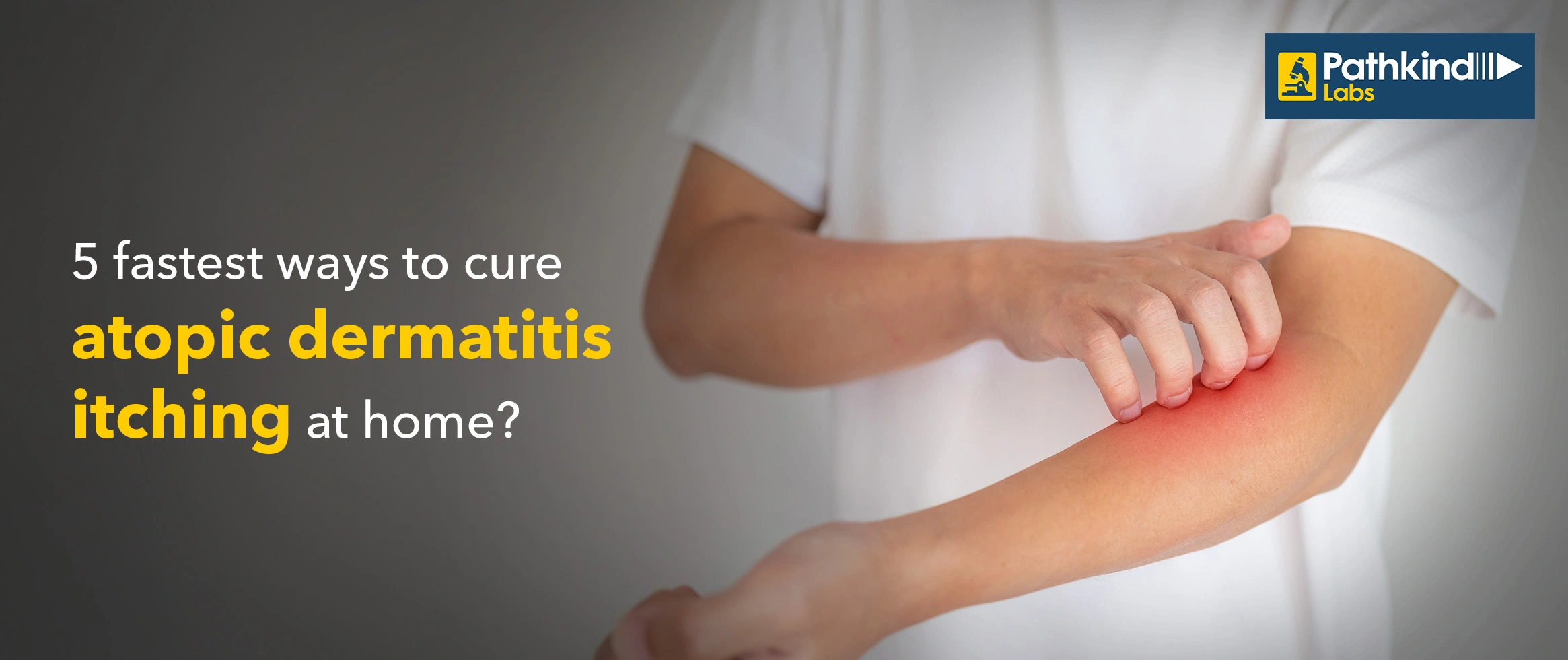
We’ll confirm your booking shortly!
Please provide your number to receive updates.
Enter the 6-digit verification code we just sent you to through SMS. Change Mobile

Atopic Dermatitis (AD), or Eczema, is a persistent, pruritic inflammatory skin condition, affecting the face, arms, neck and legs. This condition, however, is not spread in the groin or axillary regions. The skin condition emerges in early infancy but there is also a large number of people who are affected by AD. When your body develops high levels of immunoglobulin (IgE), you may acquire this disease. With proper treatments, you can reduce this skin condition.
The common atopic dermatitis causes are as follows:
Genetics
Researchers suggest that genetic mutations play a key role in developing atopic dermatitis. But, not everyone who develops similar genetic mutations may get AD/eczema. Symptoms of this skin condition can appear at any time; however, it mostly develops in early infancy. In many cases, having a parent or sibling with atopic dermatitis increases the likelihood of being diagnosed with the disease.
Immune System Dysfunction
Atopic dermatitis happens when your immune system is triggered, resulting in skin rashes, itching and redness. Developing eczema doesn’t mean you have a weak immune system. It simply means your immune system is sensitive and overreacts to certain elements which are not real threats to your body.
Environmental Triggers
Many environmental factors can trigger eczema like dry weather and dampness. You may also develop AD from house dust mites, pollen, animals and moulds.
Atopic dermatitis symptoms vary from one person to another, and it can range from mild to severe. The most common symptoms of atopic dermatitis are:
Some medications manage AD. The common atopic dermatitis treatment is as follows:
Immunosuppressants
Immunosuppressive medications are used to treat moderate to severe atopic dermatitis in infants and adults. This can also support stopping the itch-scratch cycle of this skin condition, allowing the skin to recover while lowering the risk of infection.
Emollient
Emollients are one of the most effective ways to treat atopic dermatitis in infants. These are medicated moisturisers suited for all skin types. A good emollient helps soothe, moisturise and protect skin barriers from drying out, reducing eczema flares.
Corticosteroid
Topical steroid or corticosteroid creams and ointments help decrease irritation and heal the skin. You should use them exactly as directed because overuse can result in undesirable side effects like thinning skin or pigment loss.
Various natural home remedies can help reduce your atopic dermatitis. Here are some of them.
Oatmeal Baths
Colloidal oatmeal baths may help the dry, irritated and itchy skin caused by atopic dermatitis. You can purchase colloidal oatmeal or make your own bath using regular oats.
Moisturiser
Moisturisers penetrate the skin and help reorganise the skin layers. For this reason, dermatologists prescribe moisturisers as a vital part of atopic dermatitis treatment.
Avoid Strong Heat Sources
Heat and low humidity from interior heating can dry out skin, aggravating eczema symptoms. So, it's better not to sit by the fireplace or heaters too often. In India, this problem persists mostly in the mountain regions. However, suddenly moving from cold to warm temperatures or a swift change of season from winter to spring can elevate eczema. Hence, during the cold winters, wearing fully-covered clothes is preferable to avoid the drastic effects of eczema.
Aloe Vera Gel
Aloe vera gel is made from the aloe plant. The gel is used to treat various skin conditions, including soothing atopic dermatitis. With its antibacterial and antimicrobial properties, aloe vera gel reduces the sensitivity of the immune system, thereby reducing eczema symptoms.
Gentle Soaps and Detergents
Laundry detergent may contain harsh chemicals that increase atopic dermatitis. Also, various body washes and soaps contain chemicals which form a lather and dry out the skin. Try using lather-free and fragrance-free detergents and soaps, which keep your skin healthy and won’t cause itchiness.
Atopic dermatitis can happen to anyone, regardless of their age and sex. Though the skin condition is not curable it surely is treatable with a wide range of medicated creams, immunosuppressants and various home remedies.
Discover precision diagnostics with Pathkind Labs, a trusted name in diagnostic services in India. Our NABL accredited labs, equipped with advanced technology, are staffed by a certified team of over 200+ senior pathologists and 2000+ technicians. From tailored health check-ups to specialized tests in Oncology, Neurology, Gynaecology, Nephrology, and more, we've got your health covered. Skip the hassle with online booking for tests or check-ups, available for both lab visits and at-home blood collection. For a seamless experience and early detection, choose Pathkind Labs in Gurugram. Book your appointment today and experience diagnostics made easy.
© 2025 Pathkind Diagnostics Pvt. Ltd. All Rights Reserved | Unsubscribe
